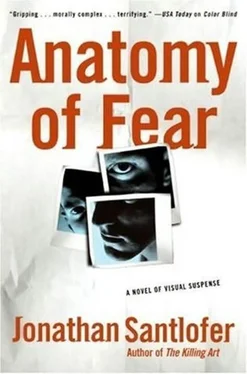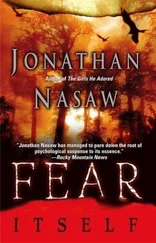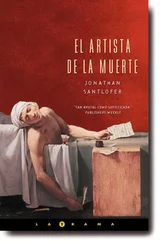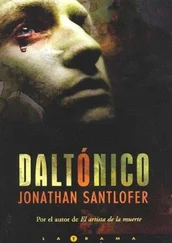“And tells us something about the man who added the symbol to his drawing.”
“Like?”
“Like on some level he wants people to know it’s him. He was telling us something intentionally, right? I’d say he’s bragging.”
I could see Terri considering that. She stopped rapping her nails and touched my hand. “This is good work, Rodriguez. Thanks.” She let her hand rest on mine a moment, then she gathered all the papers together and stood up.
“I’m going to see Monteverdi and Bransky in Hate Crimes. And don’t worry, after that, I’ll go visit my new best friend, Agent Monica Collins.”
Perry Denton smoothed his hair back the way men who are aware of their appearance always do and headed into the Bronx tenement. The first-floor stairwell was lit by a dim red bulb, the one on the second floor burned out. He gripped the railing with a gloved hand as he made his way up to three, thinking this was the last time he’d be visiting Joe Vallie in this hellhole.
Vallie was sitting at the table in his kitchenette, an alcove off the living room with a stove, a half-size fridge, and a naked light-bulb that made the pockmarks on his face look like craters.
Denton didn’t feel one bit sorry for him. He’d brought this upon himself, no matter what he thought. It wasn’t his fault that Vallie had lost his job and pension, even if Vallie thought it was.
“You’re late.”
“You’re lucky I got here.”
“No, you’re lucky you got here,” said Vallie. “Such a busy man.”
Denton ignored the sarcasm. “This is the last of it, Joe.” He placed the stack of bills onto the table. “I can’t keep doing this.”
“Sure you can, Perry. Way I see it, you’re sitting on top of the world.” He slurped some coffee out of a cracked mug. There was a pot on the stove, but he didn’t offer any to Denton.
Pitiful mess, thought Denton. But he was way past feeling sorry for Joe Vallie. It made him sick to think that his ex-partner would do this to him. And enough was enough. “This is the last time, Joe, I mean it.”
“I heard you the first time.” He fingered the wad. “But I got expenses, you know that.”
“Yeah, I heard you were sick. How come you didn’t tell me?”
“Guess I didn’t think you cared.”
Oh, I care. When he’d heard Vallie had cancer, all he could think was, Maybe he’ll die.
“Guess you’re hoping I’ll die.”
“Something like that.” Denton laughed. “Just kidding.”
“No you’re not. But don’t get your hopes up, I’m in remission.”
“Yeah, I heard that too. Good for you.” It really was too bad about that clean bill of health. It would have made it so much easier, Vallie just dying. But now it was like he was doing the man a favor, wasn’t he? Eliminating years of decline, of possible pain and suffering. Really, it was for the best. “I bet you’ll beat this thing.”
“I intend to.”
“That’s the spirit, Joe.” It was absurd, all this bullshit friendly-enemy banter when Vallie was sticking a shiv into him, holding him up when the bastard was as guilty as he was. A part of him doubted Vallie would blow the whistle because it would send him to jail too, but what did Vallie have to lose? Nothing. Still, he couldn’t take any chances, a man in his position. “Honest, Joe, if you weren’t putting a gun to my head, I’d be crying.”
“That’s something I’d like to see.” Vallie laughed. “You know I got to get out of this dump, and I got that condo ready and waiting. I just have to make the payment.”
“You mean I have to, which I just did.”
“Maybe,” said Vallie.
Not maybe, thought Denton. “Sounds real good, Joe, condo in Honolulu, some Hawaiian cutie to bring you a piña colada and suck your dick. Oh, sorry, I guess that part of you isn’t quite up to it anymore.”
“You’re such a fuck, Perry, but you always were.”
“Oh, come on, Joe, I was only teasing. We had our good ol’ narc times, didn’t we?”
“Plenty,” said Vallie. “Which is why I think so many other folks would enjoy hearing about them.”
Denton’s face hardened. He thought about killing his ex-partner right on the spot, save himself some money.
“See you soon,” said Vallie. “Real soon.”
Denton laughed and cocked his finger at Vallie as if it were a gun. “Not if I see you first, big kahuna.”
He lifts a Beck’s off the tray, eyes tracking the man’s wife as she makes her way around the room, lowering the tray for each of them. She disappears and returns with more beer, places it on a low Formica-topped coffee table, and her husband pats her arm the way you would a dog and she smiles.
He wishes his wife were more like this, checks out the matching sofa and club chairs, deep-pile rug, tan wood dinette set seen through an archway, shiny with Lemon Pledge.
A new man to the group, a guy in the military wearing sweats, who calls himself “Ethno,” short for “ethnoviolence,” says, “To be real masculine men you’ve got to do violence against the enemy.”
He recognizes that Ethno is quoting one of his über heroes, the current leader of the World Church.
“Tell your out-of-work friends and any kids you can to join the army, light infantry the branch of choice because the coming race war will be an infantryman’s war, remember that. The army is in desperate need for recruits, and where else can you get the fucking government to train you for free, right?”
This gets everyone’s attention, but after a few minutes the talk meanders back to cars and accounting, teaching and trivia, until the host, who calls himself Swift, after the founder of Christian Identity, interrupts. He pushes up his sleeves, exposing small blue-black tattoos, swastikas, as so many of them have. “What we say in public is a lot different than what we do in private.”
As he says this he looks right at him and he wonders if Swift knows what he’s been doing. He would like to stand up and declare it, but sits there pretending to drink, hand gripping the can so hard it’s denting, fragments of pictures flashing in his mind, coming together and breaking apart.
Swift asks for contributions to support legal defenses for two men in prison, Richard Glynn and Duane Holsten, and tells them what Holsten did: “He killed his brother’s wife and baby because God told him to.” He looks around at each of them, and asks: “Could you make that kind of sacrifice?”
He knows he could.
After that, they take turns reading aloud from Madison Grant’s The Passing of the Great Race and Ben Klassen’s Nature’s Eternal Religion , and after that Swift leads them in the oath, though he can’t concentrate because those pictures of what he is planning next keep vibrating in his head, and after that everyone goes back to stories about their boring day jobs and he’s about to leave when Swift takes him aside and leads him into the basement.
Behind a metal door is a small cinder-block room, walls lined with guns and rifles, pistols and flame throwers still in their original boxes, a crate of hand grenades that Swift cracks open for a peek, and he feels a kind of tug in his loins and a wave of reassurance.
Swift says, “For when the time comes,” and in that moment he feels so close to the man he wants to tell him what he is doing because he knows he will understand, but decides it’s better not to.
The NYPD had combined efforts with the bureau, the results of which had produced reams of paper documenting America’s leading white supremacist groups. Terri had stayed up most of the night reading and by morning had reached the conclusion that mankind was hopeless.
Читать дальше











